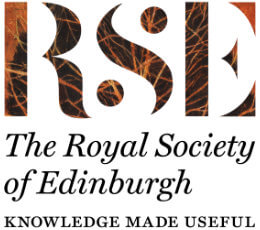Link to the episode:
Captioned video:
Show Notes
On episode 1, we welcome Rachel Hynes, a Scottish based singing for health practitioner who was a vocal Leader on the inaugural Memory Spinner’s Project at Scottish Opera, a collaborative Dementia Singing Group with Alzheimer’s Scotland, is singing leader working with Common Wheel, a mental health music charity based at Gartnavel Hospital and has trained with the British Lung Foundation, learning ‘Singing for Breathing’, to help with breath management in people with long term lung conditions such as COPD, Asthma, IPF and Bronchiectasis.
Also speaking is Co-Investigator on the network, Liesbeth Tip and Research Assistant, Sophie Boyd who also work as practitioners and researchers on a variety of singing for health projects.
The show is presented by Brianna Robertson-Kirkland, who is Principal Investigator of the Network.
The shows producer and editor is Sophie Boyd.
Below, we have provided links to resources mentioned on the episode.
More details about the Network
Website: https://portal.rcs.ac.uk/scotland-singing-for-health-network/
Get in touch: singing-for-health@rcs.ac.uk
Twitter: @ScotSingHealth
Key links
The Spheres of Singing 2020 conference was the place where the idea for Scotland’s Singing for Health Network was born. For more information on that conference, please visit: https://spheres-of-singing.gla.ac.uk/home/.
For more information on Scotland’s Initiative for Realistic Medicine, please visit: https://www.realisticmedicine.scot/.
The Social Prescribing Network: https://www.socialprescribingnetwork.com/scotland
If you are interested to know more about the work St Andrews Voices are doing on Long Covid, please visit: https://www.standrewsvoices.com/longcovid
Respiratory Health Action Plan: https://www.gov.scot/publications/respiratory-care-action-plan-scotland-2021-2026/
Singing Groups and Organisations supporting Singing for Health mentioned in the episode:
Harmony Choir: https://harmonychoir.com/
Sophie Boyd’s Singing for Breathing grouphttps://www.glasgowlife.org.uk/arts-music-and-cultural-venues/blog/singing-for-breathing.
The Cheyne Gang: https://www.thecheynegang.com/.
Memory Spinners: https://www.scottishopera.org.uk/join-in/memory-spinners/
Dare to Sing: https://daretosing.co.uk/
St Andrews Voices Singing for Lung Health: https://www.standrewsvoices.com/singing-for-lung-health
Sing to Beat: https://www.singtobeat.co.uk/stb-parkinsons-groups/stb-parkinsons-groups-scotland
Musical Memories, Hamilton: https://www.musicalmemorieschoir.co.uk/
Threshold Choir: https://thresholdchoir.org/
Singing better than team sports?
Gary Kerr has written an article for The Conversation looking at singing vs. football.
Gary Kerr, 2017, Sing ’til you’re grinning: community choirs versus football teams, The Conversation. https://theconversation.com/sing-til-youre-grinning-community-choirs-versus-football-teams-85133.
Singing, Connection ad Emotion
- Choir that transforms lives extends its range, University of Edinburgh. https://www.ed.ac.uk/research/latest-research-news/choir-that-transforms-lives-extends-its-range.
- What works: Choir singing. University of Edinburgh. https://www.ed.ac.uk/student-counselling/what-works-choir-singing.
Elyse Williams, Genevieve A. Dingle, and Stephen Clift, 2018, ‘A Systematic Review of Mental Health and Wellbeing Outcomes of Group Singing for Adults with a Mental Health Condition.’ European Journal of Public Health 28.6: 1035-042. https://pubmed.ncbi.nlm.nih.gov/29982515/.
- Harmony in research. Edits Magazine, The University of Edinburgh, https://www.ed.ac.uk/edit-magazine/supplements/harmony-research.
Hussain-Abdulah Arjmand, Jesper Hohagen, Bryan Paton and Nikki S. Rickard, 2017, Emotional Responses to Music: Shifts in Frontal Brain Asymmetry Mark Periods of Musical Change. Frontiers in Psychology. https://www.frontiersin.org/article/10.3389/fpsyg.2017.02044.
Jill Suttie, 2016, How Music Bonds Us Together, Greater Good Magazine. https://greatergood.berkeley.edu/article/item/how_music_bonds_us_together.
Daniel Weinstein, Jacques Launay, Eiluned Pearce, Robin I. M. Dunbar and Lauren Stewart, 2016, Singing and social bonding: changes in connectivity and pain threshold as a function of group size. Evolution and Human Behavior, 37.2: 152-158. https://doi.org/10.1016/j.evolhumbehav.2015.10.002
Eiluned Pearce, Jacques Launay and Robin I. M. Dunbar, 2015, The ice-breaker effect: singing mediates fast social bonding, Royal Society Open Science. https://doi.org/10.1098/rsos.150221.
Singing a stress reliever
Sarah Keating, 2020, The world’s most accessible stress reliever, BBC Future, https://www.bbc.com/future/article/20200518-why-singing-can-make-you-feel-better-in-lockdown
Music featured in the episode:
Intro music: Free Over the Fields (ID 1622) by Lobo Loco (licensed under a Attribution-NonCommercial-ShareAlike 4.0 International License)
Outro music: Famba Naye sung by the Dennistoun Cheyne Gang, recorded by Sophie Boyd. Famba Naye is a folk song that comes from Zimbabwe and is sung in the Shona language. “Famba Naye” means “Stay Well, Go Well” in Shona. As the song is about parting, it is a popular song to be sung at funerals, though it can also be sung in other contexts.



